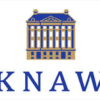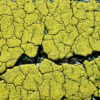Ecological limits

Fergus Green involved in new UN Production Gap Report
On 2 December a research consortium led by the Stockholm Environment Institute and including the UN Environment Program released the second annual fossil fuel Production Gap Report To limit global heating to within 1.5°C as per the goal of the Paris Agreement, the world will need to decrease fossil fuel production by roughly 6% per…
Read more
Workshop Tackling climate change and inequality together
Fair Limits will host a hybrid workshop Tackling climate change and inequality together – problems, policies and politics on 16–17 February 2021. There has been growing recognition in recent years of the multiple linkages between socioeconomic inequalities and rising greenhouse gas emissions. Reflecting these linkages, there has been a growth in advocacy of and support…
Read more
Ingrid Robeyns among Voices for a living planet (WWF)
Ingrid Robeyns has written a call to action for the Voices for a living planet project of the World Wide Fund for Nature (WWF). In her contribution, Robeyns states: “The recent past has not given us any reason to believe that companies and politicians will show the leadership we urgently need to protect the planet.”…
Read more
Earth System Governance Speaker Series
On 20 February Ingrid Robeyns and Fergus Green will deliver the fourth public lecture in the Earth System Governance Speaker Series at Utrecht University, titled Fair Limits in the Anthropocene – What are the just boundaries of our ecological footprint? In this seminar, Robeyns and Green will share their insights from the ongoing Fair Limits project, including how distributive…
Read more
Waarom zou ik? recensies en artikelen
In september 2019 verscheen bij Uitgeverij ISVW het Fair Limits boek Waarom Zou Ik? Hieronder een overzicht van recensies en artikelen die sindsdien verschenen. Waarom zou ik? Een gesprek over hoop (26-1-2020) Interview en recensie in: De Leesclub van Alles Zelf iets doen voor klimaat en natuur (11-1-2020) Recensie in: NRC Waarom zou ik? Handelen…
Read more
Climate Change and Asian Philosophy: A Dialogue in Environmental Ethics
Colin Hickey will present a paper at the Climate Change and Asian Philosophy: A Dialogue in Environmental Ethics, hosted by the University of Bergen in Norway. This conference will bring together experts in the fields of climate ethics, Buddhist ethics, and environmental philosophy in an effort to foster dialogue between non-Western philosophical traditions and contemporary…
Read more
VU Philosophy colloquium: Climate duties, freedom and well-being
Ingrid Robeyns will present her paper Climate duties, freedom and well-being at the VU Philosophy Colloquium, presented by Research Institute CLUE+, the Department of Philosophy, and Study Association Icarus. Abstract paper This paper starts from the premise that we all have individual climate duties, that is, duties not to emit more than our fair share…
Read more
FL boeklancering “Waarom zou ik?”
Fair Limits affiliate Petra van der Kooij lanceert in café Hofman haar boek ‘Waarom zou ik? Handelen in een veranderend klimaat.’ Voor het Fair Limits project ging zij in gesprek met Nederlanders over afwegingen en keuzes die komen kijken bij het zoeken naar een duurzame leefstijl. Van vergezichten van filosofen tot praktische inzichten van doeners…
Read more
Fair Limits and KNAW symposium on moral responsibility for climate policy
On the 24th of June, Fair Limits, in cooperation with the Royal Dutch Academy for the Sciences (KNAW) hosted an symposium on moral responsibility in the context of climate change. Despite the tropical temperatures outside, the auditorium of the Public Library in Amsterdam was almost fully packed. Ingrid Robeyns kicked off the afternoon by outlining…
Read more
An afternoon with Paula Casal
On Friday the 21st Fair Limits hosted a colloquium around Paula Casal’s (ICREA-Pompeu Fabra, Barcelona) work. We discussed two papers. In “Conservative and conservationist sufficiency” Casal questions the role that sufficiency principles play in theorizing about intergenerational justice. As currently understood, sufficiency principles allow for significant destruction of nature and biodiversity. Casal argues in favour…
Read more
